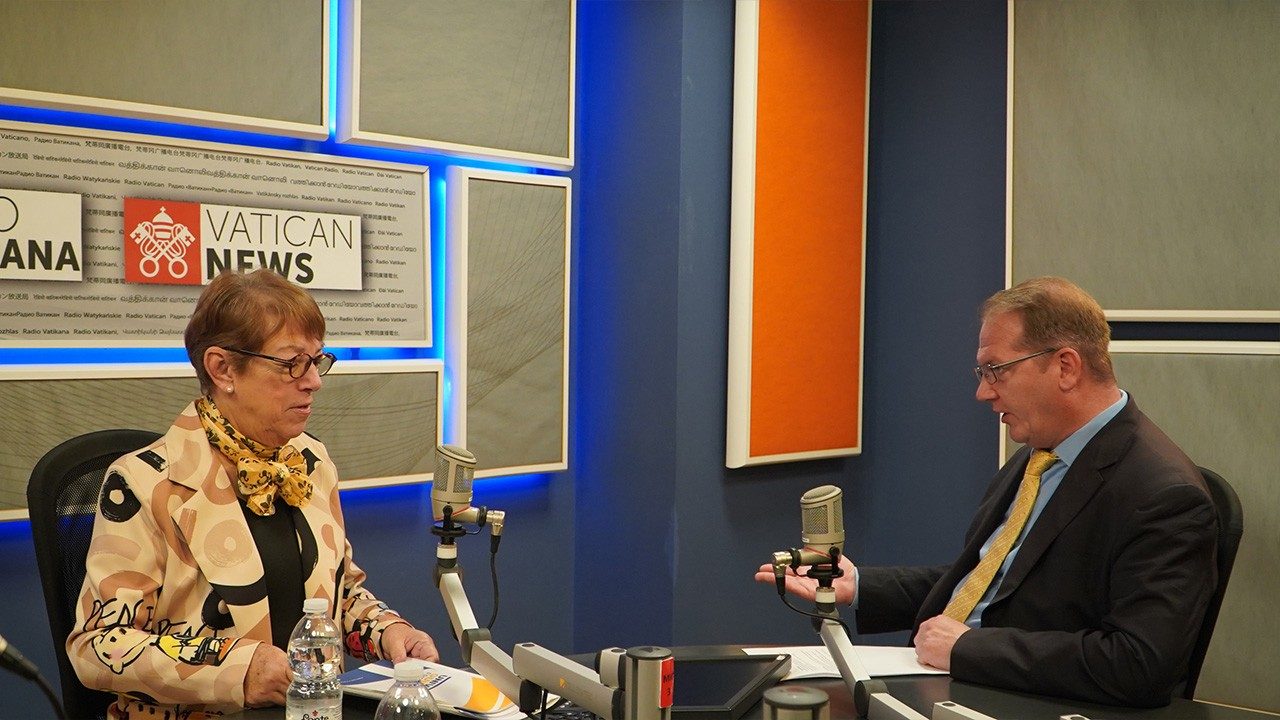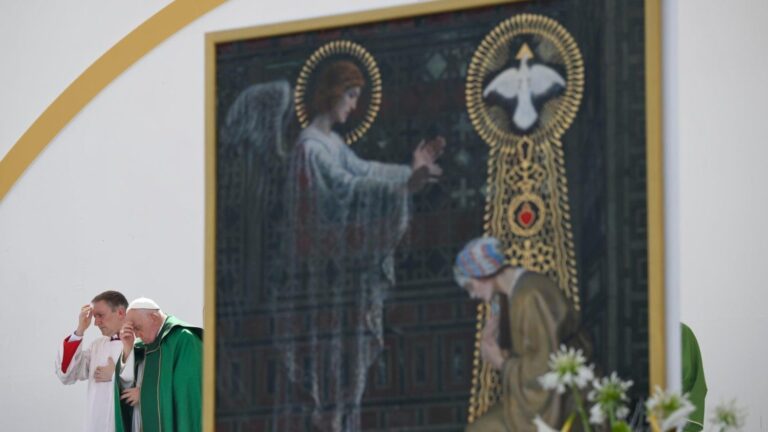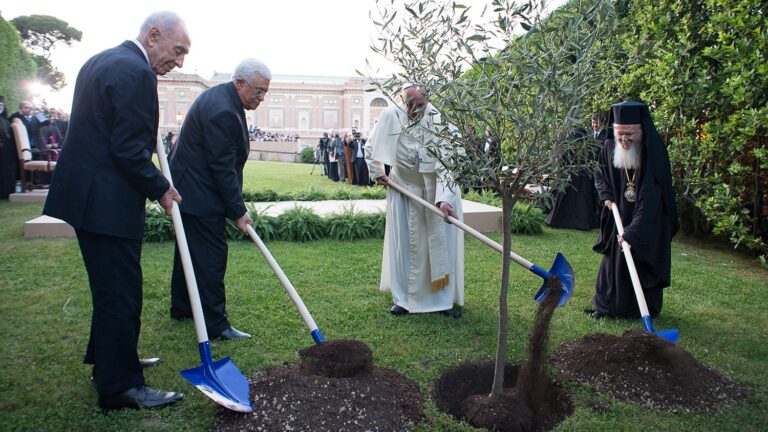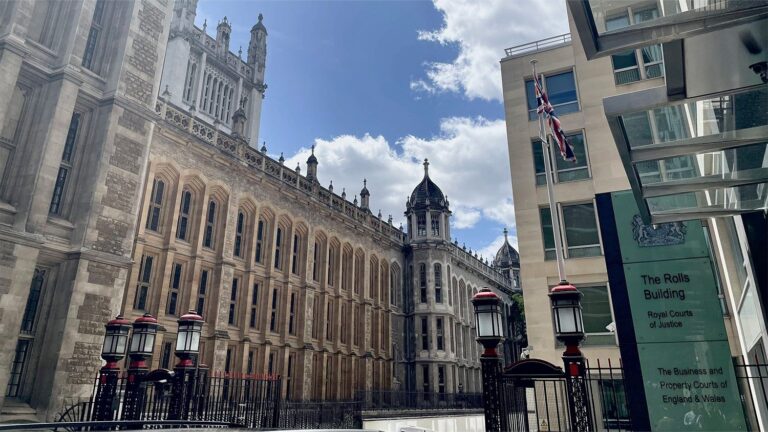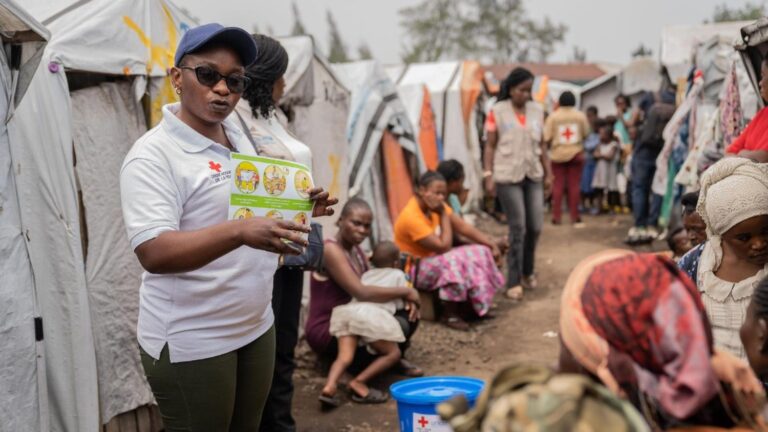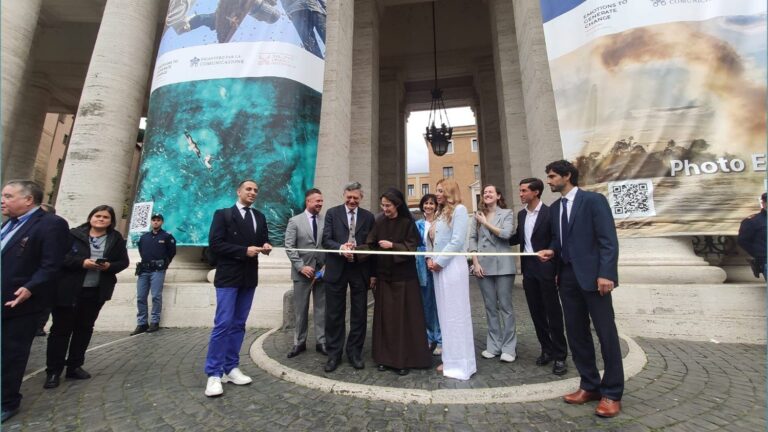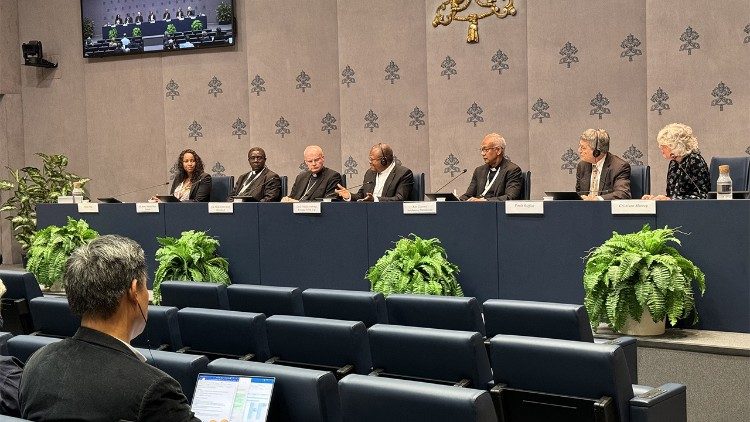Kettelkamp on abuse report: Victims want justice
Dr. Teresa Kettelkamp, Deputy Secretary of the Pontifical Commission for the Protection of Minors, provides an overview of the “Pilot Annual Report on the Church’s Safeguarding Policies and Procedures.”
By Christopher Wells
“Victims want to be heard and victims want justice,” says Dr. Teresa Kettelkamp, explaining some of the findings of the “Pilot Annual Report on Church Safeguarding Policies and Procedures,” released Tuesday by the Pontifical Commission for the Protection of Minors. .
In an interview with Vatican News, Dr. Kettelkamp, deputy secretary of the Commission, says the report is a “tool…an overview of the Church’s status in protecting and assisting survivors.”
“An observation” which she welcomes, she says, “is the desire to develop mechanisms to safeguard the Church as universal”. Acknowledging the challenges that remain, Dr. Kettelkamp says the Church already has “a safeguarding mentality,” but needs to develop a “safeguarding culture.”
Part of the challenge is bringing justice to survivors of abuse. “Victims want to be heard and they want justice,” she said.
Likewise, Dr Kettelkamp acknowledges the limitations of this initial report. “I want to give people hope,” she said. “I know this is a pilot project. This is a snapshot. There are gaps in some areas that even you know about, but this is the first time we are taking the plunge.
But, she said, “the Church takes safeguarding seriously. Even though they don’t have resources, I haven’t found a single church leader that I’ve encountered, in my experience, who rejects safeguarding.
“Now, are the resources there? » she asks. “Are the skills there? Is the knowledge base there? No, but we can help you. We can help you.
Read the full transcript of the interview with Dr. Teresa Kettelkamp.
Vatican News: Doctor Kettelkamp, thank you for being with us this morning. The commission is preparing to publish its first annual report. Can you say, in a nutshell, what is the purpose, what is the intention of this annual report?
Therese Kettelkamp: Well, Christopher, first of all, thank you for interviewing me.
I think the goal is… there are several goals. The main purpose is a tool. This is an overview of the Church’s status in protecting and assisting survivors.
The Pope asked us to give him an idea of what we are doing as a global Church in the area of child safety and survivor assistance. It was 2022. So we took this task very seriously. We had no role model to follow. We had to think about the following question: how do you do it? What is the methodology? How do we collect information? What information should we collect if available? And statistically, if we’re going in that direction, it’s scientifically sound.
So we found the methodology, and we hoped that this annual report could serve as a tool for the Holy Father and the Church as a whole, to look at how the Catholic Church is doing, guarding its children, its vulnerable (people ) safe. Are there backup guidelines and where are they located? How are we doing if they are not? What are the challenges related to their implementation? Are we reaching out to survivors? Do we have a safe and welcoming Church?
So they looked at different ways for this pilot (Report). Remember this is a pilot. So don’t look at it as years and years of tweaking, you know. First, we looked at how we were going to collect the information.
So we thought what we could do is gather information during ad limina visits when bishops come to meet the Holy Father. We could also prepare a questionnaire in addition to what the Dicastery of Bishops prepares to collect information.
This is how we meet the bishops after their meeting with the Holy Father. I hate saying that. It’s usually 4 p.m. in hot weather, but they come and they’re very hot, tired, probably hungry too, to be honest. And we’re just talking with them about the responses to their five-year survey and how we might help develop resources that we all agree are sort of fundamental to developing a safe environment in a welcoming church for those who have been mistreated.
So that’s some of the information.
The other part is that we are now divided within the Commission into regions: Asia, Africa, the Americas and Europe. So we have regional experts and we’ve asked them to do their own regional assessment of how things are going. What are the challenges? What’s the good news? The bad news? Things like that.
The third area is that we have chosen two dicasteries this year, Clergy and Doctrine of the Faith, to collaborate with them and see what we can learn from them as it relates to our common goal of ensuring the security of the Church. Openness and Transparency: I cannot stress enough about putting safeguards in place and working as a Church holistically.
The last section looks at the Church outside the Church, and that is Caritas. What other entities of the Church, in the ecclesial environment, work to help the poor, those in need, etc.? and where are their guarantees and their openness to welcoming survivors?
So this is the model that we developed in the first round. Now we have learned a lot. Regarding statistics – I know some of the questions might be about statistics – we do not have, as a Church in the area of safeguarding, a solid statistical basis and we need to work on that. But in many places, they don’t have the resources to gather this information: how many allegations, how many survivors have been reported. You can imagine the challenges in both areas.
And I hope that the report will serve as a tool, that we can use it as a basic document and improve our methodology and our collection, and then, even better, for next year, give a more precise perspective of the Church. There was one thing I was going to mention with the ad liminas: we’ve only done it 14 or 15, but we hope that during the term of this pontifical commission until (2027) we will be able to cover all episcopal conferences.
Vatican News: Thank you. This is a great overview of the document.
I know it’s quite a long document. This covers, as you said, the whole Church and the whole world. Can you maybe highlight some of the highlights in terms of your findings and your recommendations? Not in detail, but some of the most important findings and then recommendations for moving forward?
Therese Kettelkamp: Well, one observation – and I’ll be honest, I’m very happy about it – is the desire to develop mechanisms to safeguard the Church as universal. Now there can be challenges, culture, resources, just a lack of knowing how to do what we do.
So we have a protective mentality. Do we have a culture of safeguarding? Not yet. Because we need policies and procedures.
We also have a gap in terms of the existence of centers where survivors can come and seek healing. Now, different countries have different definitions, I would say, of healing. In the United States, healing might be equated, they think, with money, but that is not true. Victims want to be heard and want justice.
Now, what justice is to me may be different than justice to you, but they want justice. They want to regain their integrity.
So that’s one of the things that we found to be the challenge.
We do not currently have the mechanisms in the Church to do this, but we currently have an initiative within the Church, through the Pontifical Commission, for a Memorare initiative. And remember, our mandate is (twofold): to advise the Holy Father and to work locally. These Memorare initiatives are ways in which the local Church can work at the local level. And we will help train them and provide them with resources. And they will be centers for implementing safeguarding and reception of survivors by helping to build sustainable capacities at the local level.
So we are making slow progress in this area as well. But the world is big.
Vatican News: Is there anything you would like to say to the Church, to the victims and to all the lay faithful about your work?
Therese Kettelkamp: Yes. I want to give people hope.
I know he’s a pilot. This is a snapshot. There are gaps in some areas that even you know about, but this is the first time we are taking the plunge.
But the Church takes safeguarding seriously. Even though they don’t have resources, I haven’t found a single church leader that I’ve encountered, in my experience, who rejects safeguarding. It’s just not there. Now, are the resources there? Is competence defined there? Is the knowledge base there? No, but we can help you. We can help you.
And there are gaps in support for survivors. We need to do more to make everyone welcome. And the fact that if they have been abused, they can come forward and no further harm will come to them.
Teresa Morris Kettelkamp is an expert on policies and guidelines for the protection of minors and vulnerable adults. In January 2016, she moved to Rome to work for the Pontifical Commission for the Protection of Minors. Pope Francis named her a member of the Pontifical Commission in 2018 and, after renewing her mandate in 2022, named her deputy secretary of the Commission in 2024.
The transcript of this interview has been edited for clarity.
